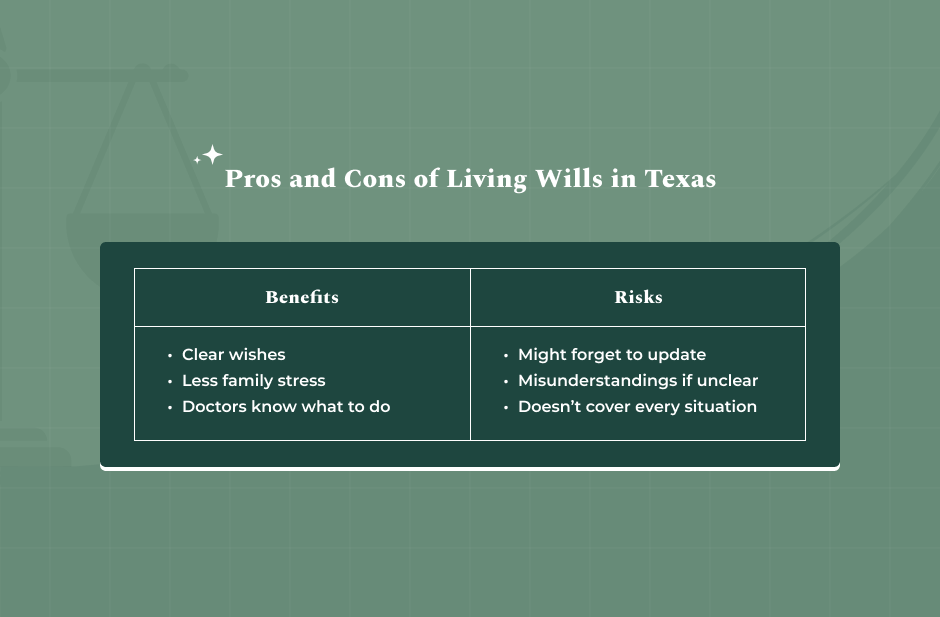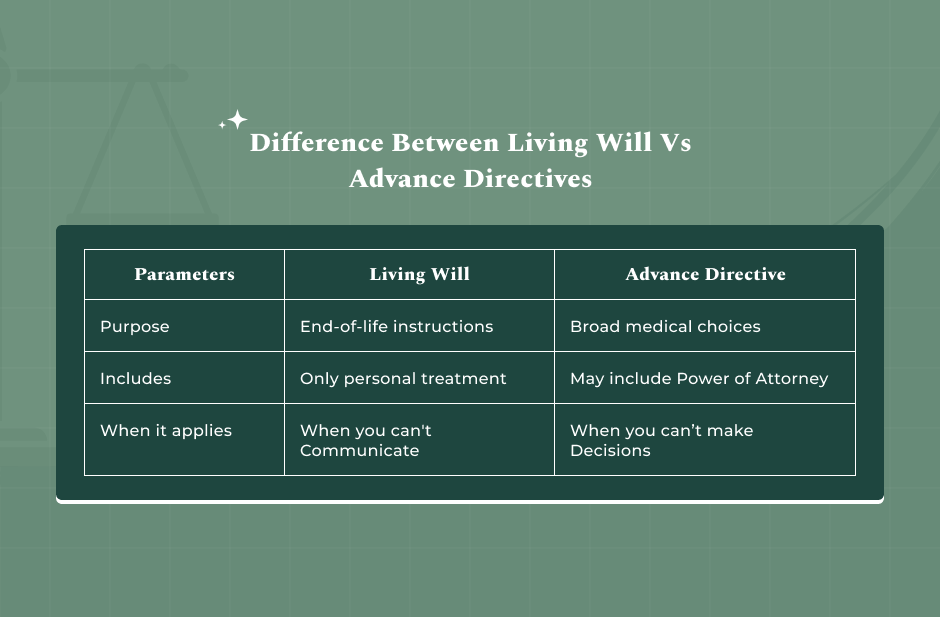Living Will Texas is a legal document that helps people make important medical choices ahead of time. Imagine if someone got really sick and couldn’t speak or move. How would doctors know what that person wants?
That’s where a Living Will in Texas helps. It tells doctors and family members what kind of medical care you want if you can’t say it yourself. This could be about life support, machines, or other treatments.
It’s not just for older people—anyone can have an accident or sudden illness. So, having a Living Will makes sure your voice is heard, even when you can’t speak.
In this blog, I will explain what a Living Will is, why it matters, and how you can make one in Texas. So, if that is something you want to know, keep on reading…
What is a Living Will in Texas?
A Living Will in Texas is a document that lets medical professionals know the type of medical care you would like or wouldn’t like to receive. This is something that comes to use when you are seriously ill and cannot speak for yourself.
It is just one piece of “Advance Directives” in healthcare, which are legal papers that focus on your treatment preference while you are still alive.
TBH, being in the hospital and unable to wake up can be a scary thing. A Living Will details conditions such as “I don’t want to be kept alive with machines if I’m not going to get better,” and “I want all possible treatments to stay alive.”
Thus, this piece of legislation will only allow your family and doctors to know for certain that the decisions are completely YOURS. So, in this way, they don’t have to worry about what you’d like.
That said, there’s some part of the story that you should have known! This document is effective only when you are unable to talk or think on your own.
When you are conscious and fine, the doctors will always ask for your opinion first. However, if you can’t respond, it’s your Living Will that will have a say. It’s as if you were enabling your future self to make a decision now.
Why Do You Need a Living Will in Texas?

You need a Living Will in Texas because life can be unpredictable. Accidents, serious illnesses, or medical emergencies can happen at any time.
If something happens to you and you can’t speak or make decisions, a Living Will makes sure people know what you would have wanted.
It helps avoid confusion or fights among family members. Sometimes, family members don’t agree on what should be done. With a Living Will, your wishes are already written down, so everyone knows what to do. It gives peace of mind to your loved ones.
Also, it helps your doctors. They don’t have to guess or make hard decisions without knowing your wishes. Your Living Will guides them. It basically works in the way of a note that says, “This is what I want, even if I can’t say it.”
What are the Benefits of Living Will Texas?
A Living Will in Texas has many benefits. First, it makes sure your medical wishes are followed, even if you can’t speak.
Second, it helps your family by removing the burden of making tough choices in stressful times. They won’t have to guess or argue about what you’d want.
Third, it gives you control. You get to decide how much medical care you want, like whether to stay on life support or not.
Lastly, it makes doctors’ jobs easier because they have clear instructions. It’s a thoughtful way to protect yourself and your loved ones.
What are the Risks of Living Will Texas?
Now, a Living Will is indeed very beneficial, but there are still a few downsides that you need to keep in mind!
One thing that comes to my mind immediately is the risk of having a misunderstanding. And let me explain why!
If the healthcare provider or relatives do not understand the instructions, they may either not be willing to help the patient or will do something that may result in the patient’s death.
Also, when you are not able to update your Living Will, the decision may force you to keep the old one for a long time.
Even though your situation changes, and you are no longer willing to be treated in a certain way, until a new instruction to cease the treatment is provided, the old Living Will will remain legally binding.
Similarly, if your family members and the doctor are not informed about your Living Will, they will be in disbelief or confusion if something happens.
Therefore, the most important step to be taken is to disclose the updated content of the Living Will to the family and the healthcare provider before the event occurs.
Lastly, not everything is predictable, and therefore, a Living Will cannot be the only option.
There may be certain cases where the establishment of a Living Will is not adequate to deal with any uncertainty, and only some estimations can make the best guess.
Can You Break a Living Will in Texas?
Yes, you can break or change your Living Will in Texas at any time, as long as you’re still able to think clearly and make decisions. Maybe you wrote it years ago, and now you’ve changed your mind about something. That’s okay.
You can tear it up, write a new one, or tell your doctor or family that you want to cancel it. It’s your choice.
But remember—if you don’t tell anyone, they might still use the old version. So, it’s important to keep everyone updated. A Living Will is not forever unless you want it to be.
Do You Need a Lawyer for a Living Will in Texas?
No, you don’t need a lawyer to make a Living Will in Texas. You can write it yourself using simple forms. The Texas state government even provides free forms online.
But if you feel unsure or if you have special medical needs, talking to a lawyer can help. They can make sure everything is written clearly so your wishes are followed exactly.
Whether you use a lawyer or not, the most important thing is to sign the paper in front of two witnesses.
These witnesses must not be people who are going to benefit from your death, like someone getting your money or property. That way, everything stays fair and legal.
Advance Directive vs. Living Will Texas: What is the Difference?

People often get confused between an Advance Directive and a Living Will in Texas. Here’s a simple way to understand it:
An Advance Directive is a big name for a group of documents. A Living Will is one of those documents.
A Living Will only talks about what medical treatments you want or don’t want if you’re seriously sick and can’t talk. It’s focused on end-of-life decisions, like using machines to keep you alive.
An Advance Directive can include more. For example, it may include a Medical Power of Attorney. That’s a paper where you name someone you trust to make medical decisions for you if you can’t.
So, the Living Will is just one part of the bigger Advance Directive plan. Both help you plan ahead, but the Living Will is all about your personal wishes on medical care when you’re very ill.
Living Will Texas: How Can You Get It?
Getting a Living Will in Texas is easy and free. You can download the official form from the Texas Health and Human Services website. It’s called the “Directive to Physicians and Family or Surrogates.”
After printing the form, you fill in your name and your choices about the medical treatment you want or don’t want. Then, you sign the paper in front of two witnesses.
These witnesses should be adults, and they can’t be your doctor, nurse, or anyone who might get your money or belongings if something happens to you.
You don’t need to file the form anywhere, but you should give a copy to your doctor, your hospital, and your family members. Keep a copy in a safe place and tell people where it is. That way, it’s easy to find when needed.
How to Write a Living Will in Texas?

Writing a Living Will in Texas is a step-by-step process. Here are a few things that you will need to do:
- Get the Form: Download the “Directive to Physicians” form from the Texas Health and Human Services website or ask a hospital for one.
- Make Your Choices: Decide if you want life support, breathing machines, or tube feeding in case you’re very sick and can’t recover.
- Write It Down: Clearly fill out the form with your choices. If you’re not sure, talk to your doctor or a trusted person.
- Sign It: You must sign the form while you are still healthy and able to understand what you’re doing.
- Get Witnesses: Two adults must watch you sign it. They also sign to say you made the choice freely.
- Share Copies: Give copies to your doctor, family, and anyone involved in your healthcare. Keep one with you.
It’s that simple. You don’t need a lawyer, just clear thinking and honest decisions.
Your Legal Guide: Updating Your Living Will in Texas
In conclusion, a living will in Texas is not just a paper. Rather, it is your voice when you are unable to speak for your rights. These legal documents work brilliantly when you are trying to protect your rights.
Additionally, this also helps your family as well as the doctors decode what path they should take in case you are unable to speak for yourself anymore.
But remember, life changes. Maybe your thoughts on medical care will change too. That’s why it’s important to look at your Living Will once a year and update it if needed.
Talk to your loved ones, keep them in the loop, and store your documents in a safe but easy-to-find place.
Read Also:
















